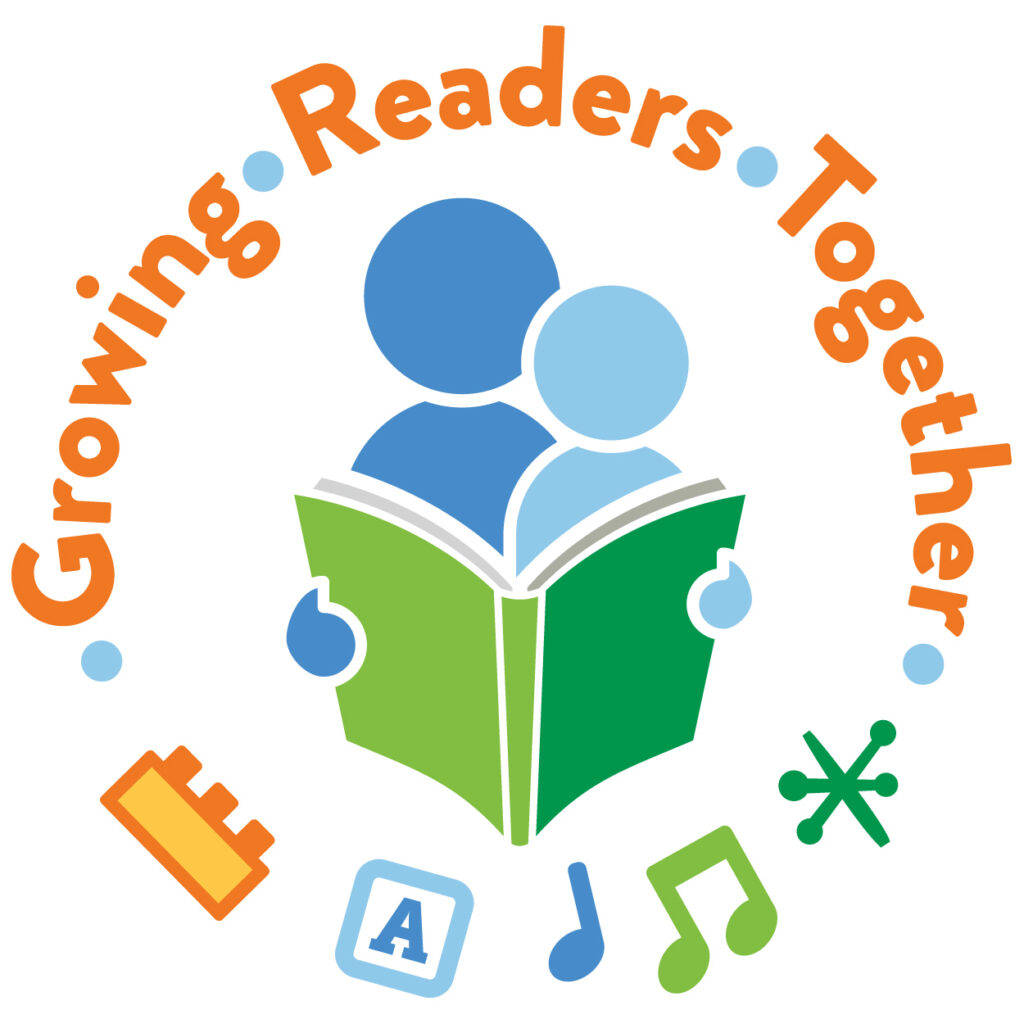
For years I have made a point to address the adults in my storytimes by a variety of terms from “grown-ups” to “caregivers,” recognizing that many children are not cared for by their parents. I admit, however, that I had not given further thought to the significance of these caregiver relationships. Growing Readers Together has changed that by shining a light on Family, Friend, and Neighbor (FFN) caregivers and the important role libraries can play in connecting them to resources. In a 2013 study, it was estimated that up to 57% of children in Colorado are cared for by informal (FFN) caregivers. These caregivers play an important role in the child’s life, whether they are caring for the child full-time or only a few hours a week. FFNs, however, are often overlooked, isolated, and lacking access to the same resources and professional development available to formal childcare providers.
Growing Readers Together is focused on connecting FFN caregivers with early learning opportunities through local libraries. Much attention has been given to assessing and improving the quality of early learning in formal child care centers, but FFN care has no licensing requirements and caregivers have a wide range of experience. Many caregivers do not think of themselves as child care providers at all, but simply a grandma, auntie, or friend doing a favor. One commonality, though, is their desire to provide quality care for their children and their interest in receiving support and information to improve their care. By making early literacy transparent and accessible, libraries can bridge the gap and support FFN caregivers in providing the best possible care and early learning experiences for their children.
When working with FFNs it is important to take a strengths-based approach. They may not have formal training, but the social-emotional bonds children forge with a close family member or friend benefit strong brain development. By providing FFN caregivers with early literacy resources, programming, and materials, libraries can help them capitalize on their caring relationship and create a quality learning environment. Libraries involved in Growing Readers Together have found simple ways to infuse the library with early learning opportunities:
- Focus storytime around a strong early literacy message.
- Make early learning materials available in your children’s area.
- Provide guided play experiences where children and adults can learn, whether a regular program, part of storytime, or special event.
The lack of any professional network presents a challenge for organizations to support FFN caregivers, but here too, libraries can play a pivotal role. As an informal, natural gathering place in the community, libraries already attract families and caregivers of all kinds. Even community members who are not frequent library patrons view the library as a trusted source of information, so a little targeted outreach can go a long way in advocating for early literacy and attracting new FFN caregivers to your library. It can be as natural as sparking up a conversation with FFN caregivers at your library, but to expand your reach, GRT libraries have found success by:
- Partnering with organizations that serve these groups, such as HIPPY, WIC, local Early Childhood Councils and Family Resource Centers.
- Adding child friendly activities to other outreach events to attract caregivers
- Offering off-site programs, such as pop-up storytimes or play groups where caregivers frequent
If you are ready to reach out to the FFN caregivers in your community and Grow Readers Together, we are here to help you! Check out our website to
- Meet the Early Literacy Support Team and connect with us to support early literacy and outreach at your library.
- Improve your early literacy expertise and get inspired by a “Quick Bite” mini-webinar.
- Learn how to reach out to FFN caregivers and host a two part workshop presented by the GRT Early Literacy Support Team. Caregivers will receive tote bags full of early literacy goodies, and your library will receive resources and supplies, as well! Already interested? Apply here!
